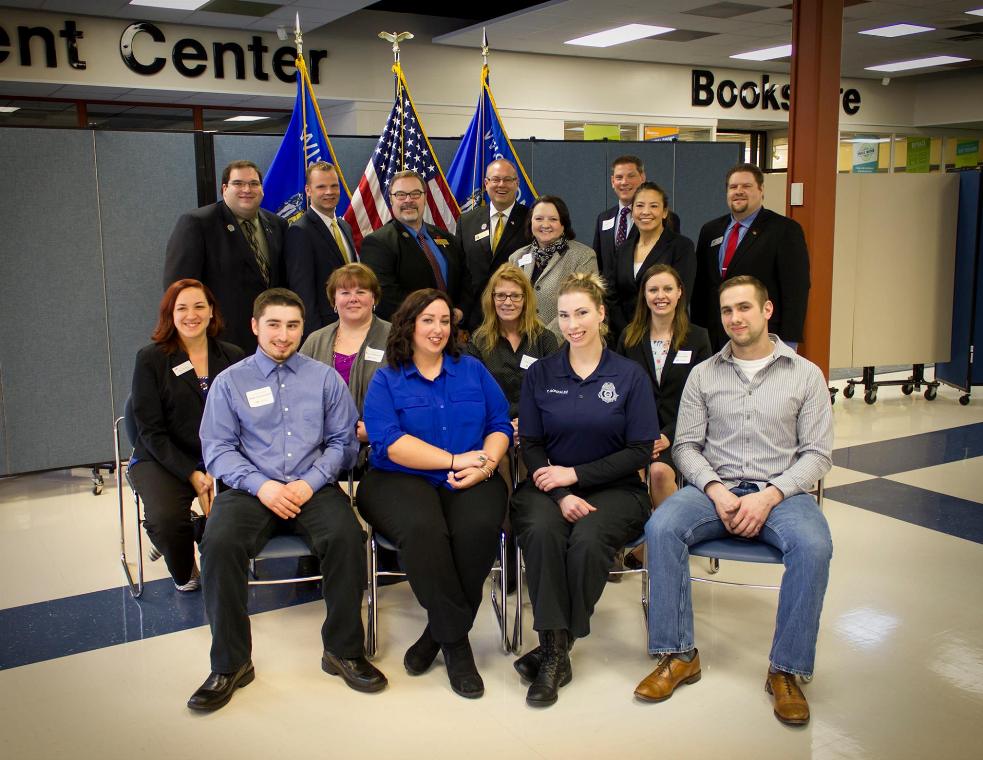|

This morning, I had the opportunity to participate in Lakeshore Technical College's annual legislative breakfast event. In addition to the many LTC students and staff in attendance, I was joined by quite a few state legislative colleagues as well as staff from the offices of U.S. Rep. Glenn Grothman, U.S. Senator Ron Johnson and U.S. Senator Tammy Baldwin. At both federal and state levels, on both sides of the political aisle, there is strong agreement that our employers are desperate for skilled, hardworking employees and that our communities are strongly motivated to retain and attract professionals of all ages. We had a great conversation about ideas for supporting the needs of our communities and making sure that Wisconsin's workforce is ready for the future.
It's a busy time in the 2017-19 state budget process. Agency heads briefed legislators and faced questions about their budget priorities all week long in a series of hearings. Much of the discussion is archived online for your reference along with prepared written testimony from agency leadership. We're making progress on improving the Governor's budget proposals and finding solutions to challenges that keep Wisconsin moving in the right direction.
As always, I encourage you to follow my updates on social media or contact my office directly with your questions. Best wishes on your weekend!

It's Never Happened Before
As a member of the Assembly Committee on Federalism and Interstate Relations, I participated this week in a public hearing (which lasted for approximately seven hours) on an unprecedented idea.
Our national debt has skyrocketed to almost $20 trillion. (That's $20,000,000,000,000, or, in words, "twenty million million." Click here to watch it grow in real time.) It totals more than $166,000 per American taxpayer; chances are that if you had to list your share of the national debt on your personal financial statement, you would qualify for bankruptcy. Interest on the debt accumulates at more than $14,000 per second. It is out of control. But Congress refuses to address the debt's root causes or even take meaningful steps toward slowing the public spending. Every U.S. state but one (Vermont) has some form of balanced budget provision that helps keep a lid on spending... but Congress has no such limitation.
The Founding Fathers anticipated that Congress could become paralyzed by issues such as public debt, which is why Article V of the U.S. Constitution provides a way for the states to amend the Constitution without Congress. Assembly Joint Resolution (AJR) 21, if passed by both houses of our state legislature, could help force a real conversation.
Here's how it works: if AJR 21 passes in the Wisconsin legislature, Wisconsin would become the 30th state to pass a resolution that is narrowly focused on the subject of a balanced federal budget. If just four more states do likewise, the necessary two-thirds threshold (34 states out of 50) will have been met; a meeting of delegates from all the 50 states would be required to convene. These bipartisan delegates would be empowered (if they are able to find common ground and pass anything at all) to propose constitutional amendments related only to requiring the federal government to operate under a balanced budget, just as 49 out of 50 states have to do. If the delegates succeed at proposing any constitutional amendments, then three-fourths of the states (38 out of 50) would still have to ratify those proposed amendments before they would become legally binding.
I have to admit that I was skeptical of this idea for a long time. For one thing, it seemed too far-fetched; there has never been an issue in American politics in our entire history that successfully motivated three-fourths of our states to act together on something that Congress refused to act upon. (In fact, that high three-fourths threshold is the critical safeguard that would effectively block all but the most bipartisan, balanced proposals from being enacted.) But it is clear that, at the urging of the states and the general public, the pressure is building on Congress to address our out-of-control public debt. I support the effort by the Wisconsin Legislature to help nudge Congress toward responsible reforms to start getting our fiscal house back in order.
School Choice Enrollment Deadline Approaching
The deadline for families to apply for a spot for their child in the Wisconsin Parental Choice Program is April 20th. During the 2017-18 school year, eight schools located in Sheboygan County will be participating in the program. Wisconsin's school choice programs provide low- to middle-income families with opportunities to choose the school that fits their children's needs.
The Department of Public Instruction's school choice homepage offers a wealth of useful information about the programs, including an overview of the application process, frequently-asked questions, contact information for participating schools and the online application itself. Parents with further questions are strongly encouraged to directly contact the school they are interested in applying to; school staff are usually in the best position to help families access the program.
|

